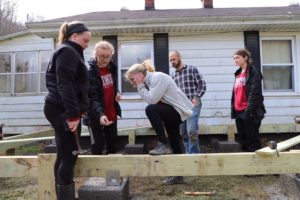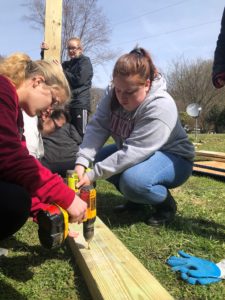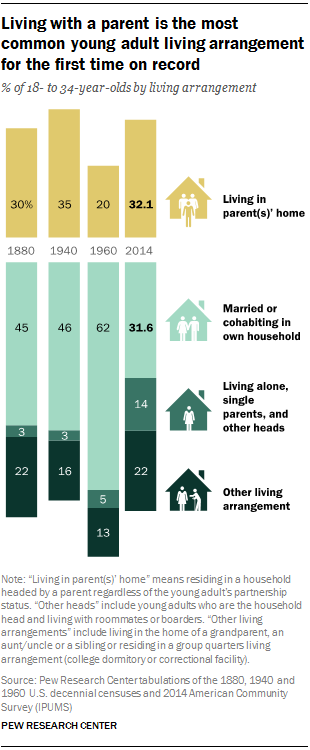Not many of us had any idea what 2020 and the Covid virus would mean for our churches, our schools, our communities. Due to major shifts in the lifestyles of emerging adults including: high unemployment, closed campuses, and social distancing – the ways in which we minister to emerging adults must also shift.
Here are a few things that may appear simple, but will prove more essential than getting them to attend your Zoom hangouts.
- Help them process.
 I was on a mission trip with 20 college students in the mountains of Virginia working on construction projects. Throughout the week, college group after group were forced home early due to their campuses and all activities being shut down. Even separated in the mountains from the news of Covid, and lack of social media – the students were scared. They had never experienced anything like this before – and neither had I.
I was on a mission trip with 20 college students in the mountains of Virginia working on construction projects. Throughout the week, college group after group were forced home early due to their campuses and all activities being shut down. Even separated in the mountains from the news of Covid, and lack of social media – the students were scared. They had never experienced anything like this before – and neither had I.
They had a ton of questions (What about my classes? My grades? My internship? My parents? My financial aid? My graduation?) The practical questions came first – and nobody had answers at the time. Even without answers, voicing their questions allowed them to be heard, and provided the empathy that they needed. Although they asked the same questions over and over, they needed this repetition to process the changes.
Processing these questions together on a service trip helped build community. They no longer felt alone in facing these changes, but they knew that they had others around them to listen and support them. Processing their losses (through lament), and finding things to celebrate together is crucial for them to keep moving forward.
2. Provide companionship.
This season of social isolation has been difficult because social isolation erodes our emotional health. Combining social isolation with other losses and disappointments is a double whammy to emerging adults. High school seniors lost spring sports, graduations, and proms. College seniors also missed many events – and have now graduated into a struggling economy with high levels of unemployment. As those who work with emerging adults – we need to be ready to provide sympathy and understanding when they fret over their college loans coming due this fall. 
Companionship is crucial when facing uncertainty. You can provide companionship by acknowledging their losses, and reminding them that they are not alone. This doesn’t mean you need to function as their therapist, job recruiter, or educational consultant (although stepping into some of those roles is sometimes needed), but they need consistent check-ins. Regular communication with emerging adults you are close to – can help them feel grounded and not alone. Their typical modes of communication (email, social media, text, phone) may have shifted over the last few months, so make sure that you know how best to reach them.
3. Point to faith, not fear.
In these times of uncertainty, we all need to turn to faith and not allow our fears to direct our decisions. In the midst of fear, emerging adults may make bad decisions and turn to addictions, old routines, or unhealthy patterns (like spending or eating). In this chaos, we must constantly be providing a steady voice in their storm (even if we feel unsteady ourselves at times). We provide a voice that calls them to faith in a God who is with them and knows the future.
What have you found helpful to ministering to emerging adults during social isolation? Leave your comments below.











 Here is a podcast by Steven Argue, who is an expert on emerging adulthood and faith. He is also the parent of three emerging adults.
Here is a podcast by Steven Argue, who is an expert on emerging adulthood and faith. He is also the parent of three emerging adults.





